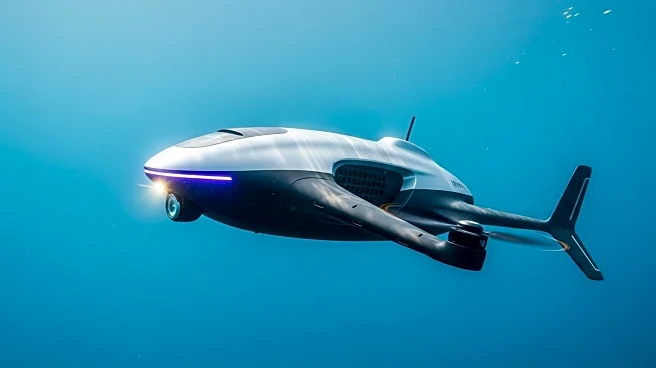What's Happening?
Norwegian subsea services firm Reach Subsea has received a trading permit from the Norwegian Maritime Authorities to operate its Reach Remote 1 Uncrewed Surface Vessel (USV) entirely through remote operations, without the need for a support vessel. This approval marks a significant milestone for the maritime and offshore industry, as it is the first of its kind for a USV of this size with integrated Work Class ROV capability. The vessel has been in full commercial operation and is now entering the final phase towards full certification. Reach Remote 1 has already commenced work for Shell on the Ormen Lange field, operating independently and showcasing the future of remote-controlled subsea services. The Reach Remote program aims to transform subsea operations through ocean robotics, with the vessel demonstrating equivalent or better maritime safety levels compared to manned vessels.
Why It's Important?
The approval for Reach Remote 1 to operate entirely through remote control represents a significant advancement in maritime technology, potentially reducing the need for offshore personnel and lowering emissions. This development could lead to increased efficiency and safety in subsea operations, as remote-controlled vessels can operate in challenging environments without risking human lives. The milestone also highlights the growing importance of ocean robotics in transforming traditional maritime practices. As the industry moves towards more sustainable and autonomous solutions, companies like Reach Subsea are paving the way for future innovations that could reshape the offshore energy sector.
What's Next?
Reach Subsea is preparing to deploy Reach Remote 2 in Australia, with Reach Remote 3 and 4 currently under construction. These developments indicate a continued expansion of remote-controlled subsea services, potentially leading to broader adoption of USVs in various offshore tasks. The success of Reach Remote 1 could encourage other companies to invest in similar technologies, further advancing the industry's shift towards automation and sustainability. Stakeholders in the maritime and offshore sectors may need to adapt to these changes, considering the implications for workforce dynamics and environmental impact.
Beyond the Headlines
The approval of Reach Remote 1 for remote operations raises ethical and legal questions regarding the future of employment in the maritime industry. As automation becomes more prevalent, there may be concerns about job displacement and the need for new skill sets among workers. Additionally, the legal framework governing remote operations will need to evolve to address safety, liability, and regulatory compliance. The cultural shift towards embracing technology in traditional industries could also influence public perception and acceptance of autonomous systems.










